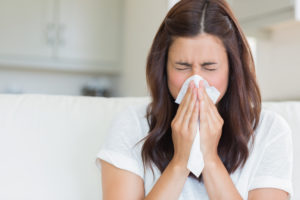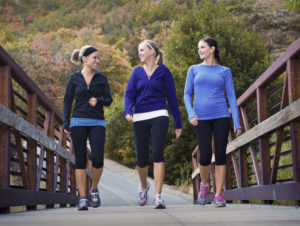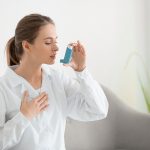November 22, 2023
Colds are the most common reason people see a doctor in the United States. Adults may catch a cold up to four times a year, whereas children tend to be exposed more and may contract as many as eight per year. These illnesses are highly contagious, frequently spreading through droplets from a sneeze or cough.
Colds are caused by various viruses — more than 200, to be exact. Among these, rhinovirus is the main culprit, accounting for up to 40% of cases. A cold can last from a few days to over a week and may take longer to recover in the very young and elderly. When you are in the thick of the symptoms, you may be willing to try just about anything for relief — even turning to old wives’ tales or home remedies for a quick fix. A common belief suggests that sweating can help eliminate cold symptoms, but how much truth does this claim hold? In this article, we’ll investigate if sweating remedies the common cold.
Identifying cold symptoms
A cold is a contagious upper respiratory infection caused by a virus. Colds affect your nose, throat, and sinuses. Cold symptoms usually occur in phases, with the first symptom often appearing as a tickle in the throat followed by:
- Sneezing
- Runny or stuffy nose
- Cough
- Raspy or hoarse voice
As the virus peaks, usually around day three, you may experience:
- Body aches
- Headaches
- Burning or watery eyes
- Fatigue
- Low-grade fever
- Discharge from the nose may thicken or change color
The final stage of a cold occurs roughly after a week and may include an annoying cough that can last a few more days or weeks. If your symptoms worsen or new symptoms arise, contact your healthcare provider.
Is it possible to sweat out a cold?

Contrary to popular belief, sweating doesn’t expel cold viruses from our bodies. Its primary role is to regulate body temperature by releasing impurities, not to combat infections like colds directly. Though some think sweating out a cold can speed up recovery, there’s no scientific support. Instead, it’s our immune system that actively fights off infections, including cold viruses, using various immune responses — not through the process of sweating.
Does sweating help congestion?
People often believe sweating from hot steam may help combat colds and relieve congestion. Is this belief valid or even beneficial? One study involving six trials found no discernable benefits or harm from exposure to warm, humid environments for those suffering from congestion due to the common cold. However, The Centers for Disease Control and Prevention (CDC) reports that a warm compress over the nose or forehead or inhaling steam from a bowl of hot water or a shower can temporarily relieve sinus pain, pressure, and congestion. However, these techniques will not shorten the length of a cold.
As with any treatment option, inhaling steam could pose risks, including potential burns from overly hot steam or water. Use caution when trying these methods.
Should you exercise when you have a cold?

Exercising regularly is undoubtedly beneficial for maintaining overall health, but what about when you’re under the weather? The decision to work out while having a cold largely depends on the severity of your symptoms. Light to moderate exercise might be feasible if your symptoms are above the neck, such as a runny nose or sore throat. However, if you have symptoms below the neck, like chest congestion, body aches, or a fever, it’s best to rest and allow your body to heal. Pushing yourself too hard when your body is fighting off an illness can pro
long recovery and, in some cases, exacerbate symptoms. Always listen to your body— consult a healthcare professional if in doubt.
Does sweating make a cold worse?
Sweating is the body’s natural mechanism to cool down when overheated. During a fever or illness, the body loses fluids, which must be replenished to prevent dehydration. This becomes even more crucial if you exercise while having a cold or use steam from a sauna or prolonged shower to alleviate congestion. Such methods can lead to increased sweating and more significant fluid loss. Staying well-hydrated when you have a cold is essential, ensuring that sweating doesn’t compound your condition.
How to treat a cold at home
Although you won’t be able to sweat away a cold on your own, there are other strategies you can employ to manage symptoms and help fight infection at home. Here are a few pointers on treating one at home:
- Rest: Ensure you get enough rest so your body has time to defend itself.
- Stay hydrated: drink fluids like water, broth, or warm tea. This can help relieve congestion and prevent dehydration.
- Over-the-counter Medications: Try Acetaminophen or Ibuprofen to relieve body aches and fever. Saline drops and spray can help with stuffiness and congestion. Cough and cold medicines are also suitable for symptom management if you are over the age of five.
When to seek medical advice

Not all colds are created equal. If your symptoms worsen, last longer than ten days, or you have difficulty breathing, a high temperature, or severe throat discomfort, it’s time to consult a doctor. Healthcare Associates of Texas is available to assist you.
Your health partner: Healthcare Associates of Texas
While sweating off a cold sounds appealing, it won’t speed up recovery. Remember, you are never alone on your health journey. If you’re dealing with medical issues, book an appointment with us at Healthcare Associates of Texas.
References
- American Lung Association. (2023, March 27). Facts about the common cold. https://www.lung.org/lung-health-diseases/lung-disease-lookup/facts-about-the-common-cold
- (2022, March 4). Common cold: Early signs and 4 stages. https://www.medicinenet.com/common_cold_stages_and_timeline_of_symptoms/article.htm
- [Singh, M. Singh, M. Jaiswal, N. Chauhan, A.]. (2017). [Heated, humidified air for the common cold]. Cochrane Database of Systematic Reviews. https://www.cochranelibrary.com/cdsr/doi/10.1002/14651858.CD001728.pub6/full
- Centers for Disease Control and Prevention. (2019). Sinus Infection (Sinusitis). CDC. https://www.cdc.gov/antibiotic-use/sinus-infection.html
- Laskowski, Edward. (2022). Is it okay to exercise if I have a cold? Mayo Clinic. https://www.mayoclinic.org/healthy-lifestyle/fitness/expert-answers/exercise/faq-20058494
- Mayo Clinic Staff. (n.d.). Cold remedies: What works, what doesn’t, what can’t hurt. Mayo Clinic. https://www.mayoclinic.org/diseases-conditions/common-cold/in-depth/cold-remedies/art-20046403
DISCLAIMER
The information featured in this site is general in nature. The site provides health information designed to complement your personal health management. It does not provide medical advice or health services and is not meant to replace professional advice or imply coverage of specific clinical services or products. The inclusion of links to other web sites does not imply any endorsement of the material on such websites.



